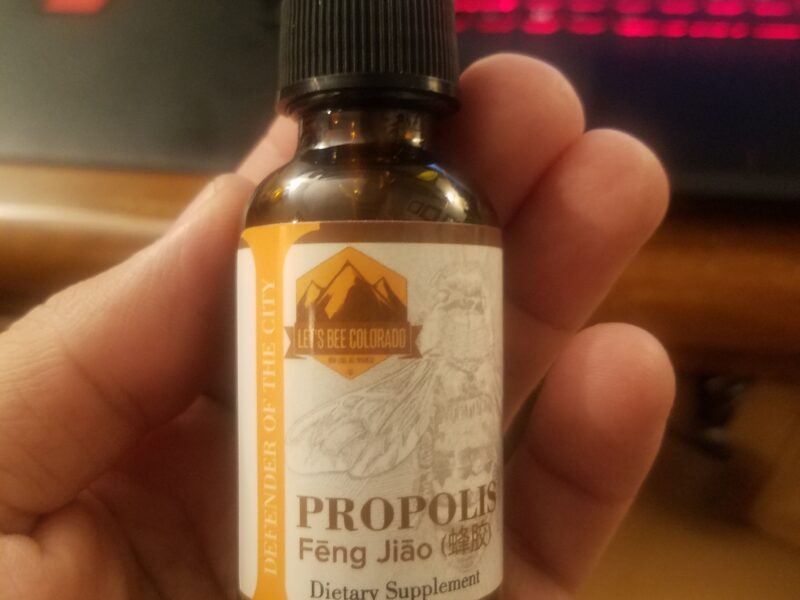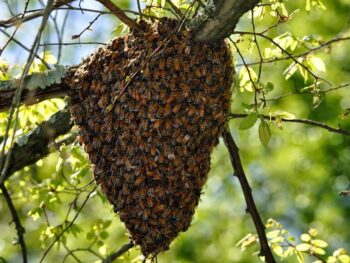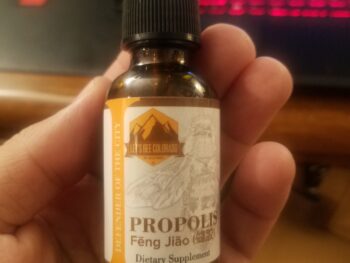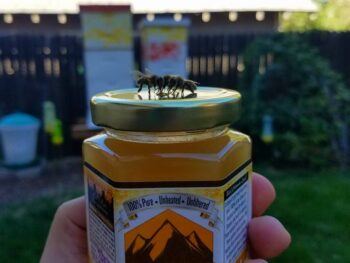Bee propolis is a remarkable substance created by honey bees through the collection and transformation of resinous materials from various plant sources. This sticky, resinous substance is known for its antibacterial, antiviral, antifungal, and anti-inflammatory properties. For centuries, humans have recognized the medicinal value of bee propolis and have utilized it in various forms. In recent years, propolis tinctures have gained popularity as an effective way to harness the therapeutic benefits of this natural wonder. In this essay, we will explore the origin, composition, benefits, and utilization of bee propolis as a tincture.
- Origins and Composition of Bee Propolis:
Bee propolis is primarily composed of resinous substances collected by bees from tree buds, sap flows, and other botanical sources. Bees combine this resin with wax, pollen, enzymes, and their own secretions to create a sticky, malleable substance. The specific composition of propolis varies based on the geographic location, climate, and available plant sources, resulting in variations in color, aroma, and chemical constituents.
- Health Benefits of Bee Propolis:
Bee propolis possesses a wide array of health-promoting properties, making it a valuable natural remedy. Its antibacterial properties help inhibit the growth of harmful bacteria, including Streptococcus, Staphylococcus, and Escherichia coli. The antiviral properties of propolis make it effective against various viruses, including herpes simplex virus, influenza, and respiratory syncytial virus. Moreover, the antifungal properties of propolis combat fungal infections caused by Candida and Aspergillus species.
Propolis is also known for its anti-inflammatory effects, reducing inflammation and promoting the healing of wounds and ulcers. Additionally, it exhibits antioxidant activity, helping to neutralize harmful free radicals and protect cells from oxidative damage. These therapeutic properties make propolis a valuable tool in promoting overall health and supporting the immune system.
- Utilization of Bee Propolis as a Tincture:
A propolis tincture is a concentrated liquid extract of propolis, typically made by combining raw propolis with a solvent, such as alcohol or glycerin. The tincture extraction process allows for the extraction of the bioactive compounds from propolis, making them more easily accessible for medicinal use. The tincture form offers several advantages, including ease of use, prolonged shelf life, and enhanced bioavailability of the active components.
- Preparation of Propolis Tincture:
The preparation of a propolis tincture involves several steps to ensure the extraction of the desired compounds. First, raw propolis is collected, typically obtained from beekeepers or specialized suppliers. The propolis is then cleaned to remove impurities such as beeswax and foreign particles. After cleaning, the propolis is finely ground or crushed to increase the surface area for extraction.
Next, the propolis is placed in a suitable solvent, such as high-proof alcohol (e.g., ethanol) or food-grade vegetable glycerin. The solvent is added in a specific ratio to the propolis, allowing for optimal extraction. The mixture is then left to steep or macerate for a period of time, typically a few weeks, to facilitate the extraction of the bioactive compounds. During this time, the tincture needs to be shaken occasionally to promote thorough extraction.
After the maceration period, the mixture is strained to remove the solid particles, resulting in a concentrated liquid extract—the propolis tincture. The tincture can be stored in dark glass bottles to protect it from light and maintain its potency.
- Applications and Usage of Propolis Tincture:
Propolis tincture offers a versatile and convenient way to incorporate the health benefits of propolis into daily life. Here are some common applications and usage methods:
- Oral Consumption: Propolis tincture can be taken orally by adding a few drops to water, juice, tea, or other beverages. It can be consumed daily as a general health tonic or used in higher doses during periods of increased susceptibility to infections or immune challenges.
- Topical Application: Propolis tincture can be applied directly to the skin to promote wound healing, soothe skin irritations, or address fungal or bacterial infections. It can be diluted with water or mixed with carrier oils, such as coconut or olive oil, for easier application.
- Mouthwash and Oral Care: Due to its antibacterial properties, propolis tincture can be used as a mouthwash by diluting it in water. This helps maintain oral hygiene, combat bad breath, and support gum health.
- Natural Remedies: Propolis tincture can be combined with other herbal extracts or essential oils to create customized natural remedies for specific ailments, such as sore throat, cold sores, or acne.
It is important to note that propolis tincture may cause allergic reactions in some individuals, especially those with known allergies to bee products. It is advisable to perform a patch test before using it topically or consult a healthcare professional for guidance if any concerns arise.
Conclusion:
Bee propolis is a remarkable substance with a rich history of medicinal use. Through its antibacterial, antiviral, antifungal, anti-inflammatory, and antioxidant properties, propolis offers a wide range of health benefits. The utilization of propolis as a tincture provides a convenient and effective way to harness its therapeutic potential. Whether consumed orally, applied topically, or used for oral care, propolis tincture offers a natural and versatile remedy for promoting overall well-being. By tapping into the incredible healing powers of bee propolis, we can appreciate the wisdom of nature and unlock the potential of this extraordinary substance.








 Raw Local Honey vs. Store Bought Honey
Raw Local Honey vs. Store Bought Honey